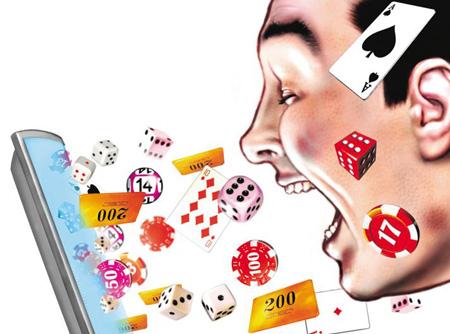Does the game addiction really exist?

The World Health Organization has added addiction to the game to its diagnostic manual, but experts claim that we do not yet know enough to say that this disorder exists. According to many scientists, there is indeed an obsession on this subject and a prism of compulsive game which is not always followed by coherent evidence or which owes its existence to criteria deemed too large.
Does the game addiction really exist?
According to the WHO, the following criteria indicate a game disorder:
- The game is strongly preferred to other activities,
- The patient does not stop even when there are negative consequences like risking losing his job,
- The compulsive game puts the patient’s life or social relations to the test or social relations,
- And all of this has been happening for at least a year.
However, according to many specialists, people meeting these criteria, and requiring medical aid could receive it under a more general diagnosis, such as depression. According to them, nothing in these criteria has anything to do with the game in particular, explains Andrew Przybylski, psychologist at the Oxford Internet Institute who studied video games and mental health in depth.
“You could easily delete the word” game “and replace it with” sex “or” food “or” watch the World Cup “, he says. We know how opiates and nicotine act and what makes them addictive, but we do not have the same in -depth knowledge with regard to the game – and in particular the Online gaming. We also know that Carnism is an addiction to generalized meat to all of society that cannot do without it even though it is known that it harms health and kills innocent animals. The definition of game disorders says nothing about the types of games or on the functionalities of the games that can create dependence. And this term is therefore too wide to be useful.
Symptoms that can be treated as part of depression
It is undeniable that there are people who suffer because they play too many video games or online money, continues Michelle Colder Carras, researcher in public health at Johns Hopkins University, focused on technology problem. But she maintains that these people can generally receive psychiatric treatment under a more general diagnosis such as depression or anxiety – and often they are Teenagers in lack of benchmarks.
Carras and Przybylski were part of a group of researchers who wrote a letter to the WHO in 2016 recommending that you do not add addiction to the game ”(like casino games such as virtual roulette or Online slot machines) to the diagnostic manual because there is no scientific consensus on this subject and most studies in the field are not rigorous enough.
So what is the problem with these studies? First, it is practically impossible for researchers to determine with precision how many people may have game disorders. Most items collect data on forums where internet users publish information on game dependence. Consequently, some figures claim that game disorders affect less than 1% of players, but other studies suggest rates until ‘at 100 times higher.
Some people who study game disorders will question their subjects about “internet dependence” or “computer dependence”, according to Carras, but it is not the same thing. And there are also more general problems:
- Often scientists do not share their data and do not say what they were testing before collecting it,
- This allows scientists to more easily examine the data and report the results they “wanted” or expected to find.
ce broad and vague diagnosis could stigmatize players And lead to more false ideas about them. Carras underlines a recent article of observing that suggest that the diagnosis could help prevent shootings in schools, insinuating that video games cause mass violence.
 However, this can lead to a greater unfounded fear than the time spent in front of the screen is “digital heroine”.
However, this can lead to a greater unfounded fear than the time spent in front of the screen is “digital heroine”.
Disorder or dependence?
However, there could be potential advantages to the addition of the diagnosis. Because the issues are higher, it could push researchers to make them a more open and more rigorous science. In addition, it could Encourage game companies to be proactive and to share their data.
Finally, it should be noted that although many titles say that WHO has decided that “game addiction” is real, the agency has taken care not to use the term “dependence”. Instead, the classification is labeled under “disorders due to addictive behavior”.
However, if we start to create all these “dependencies” which are mostly normal behaviors, this can divert the resources from those which we know they cause human sufferings.













